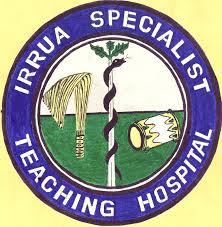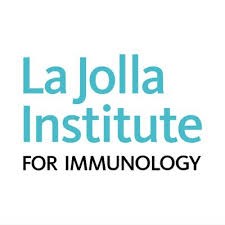Our Partnerships
Zalgen values our numerous partnerships and other alliances with globally recognized leaders in academic, research, development, clinical and business sectors, all seeking and establishing collaboration opportunities to combine our collective talents for combating viral hemorrhagic fevers and other neglected tropical diseases.
This sharing of resources and expertise continues to facilitate advancing the knowledge base at an accelerated pace to strengthen the level of science enabling us to move programs quicker and more efficiently through discovery and development stages en route to completion and commercialization.
Successfully executing this strategy has significantly enhanced our capabilities and enabled us to grow rapidly since the company commenced its operations in 2011.

Tulane University
New Orleans LA USA
Tulane University www.tulane.edu (Tulane), founded in New Orleans in 1834 is one of the most highly regarded and selective research universities in the United States and is a member of the prestigious Association of American Universities. Under contract with the World Health Organization, Tulane implements the Mano River Union Lassa Fever Network program in the Mano River Union countries (Sierra Leone, Liberia and Guinea) to assist in the development of national and regional prevention and control strategies for Lassa fever and other important regional diseases. Tulane leads the Viral Hemorrhagic Fever Consortium in developing therapeutics, vaccines and diagnostics for the detection of Lassa fever.

The University of Texas Medical Branch – Galveston National Laboratory
Galveston TX USA
The Galveston National Laboratory www.utmb.edu/gnl (GNL) is a sophisticated high containment research facility including BSL-4 that serves as a critically important resource in the global fight against infectious diseases. The GNL is located on the campus of the University of Texas Medical Branch at Galveston (UTMB) and operates under the umbrella of UTMB’s Institute for Human Infections and Immunity.
Our collaboration with Dr. Thomas Geisbert, Dr. Robert Cross and others at the GNL includes research on the pathogenesis of emerging and re-emerging viruses and the development of countermeasures against these viruses. Specifically, the Geisbert laboratory is collaborating with us in the development of immunotherapeutics for Lassa fever, and the advancement of diagnostic products for Lassa and Ebola.

Viral Hemorrhagic Fever Consortium
The Viral Hemorrhagic Fever Consortium www.vhfc.org (VHFC) was established in 2010 following the award of a five-year, $15 million contract awarded to Tulane University by the National Institute of Allergy and Infectious Diseases (NIAID) to study and decode the role of B cells in the immunology of Lassa fever. The VHFC is a nonprofit institute 501(c)(3) incorporated in Louisiana and managed by a Board of Directors, none of whom receive compensation for their service.
VHFC members include Zalgen, Tulane, Scripps Research, La Jolla Institute of Immunology, Broad Institute, Harvard University, University of California at San Diego, University of Texas Medical Branch, Autoimmune Technologies, Kenema Government Hospital (Sierra Leone), Irrua Specialist Teaching Hospital (Nigeria), Redeemers University (Nigeria), and various other partners in West Africa. Together they work on evaluating antibodies from patients who have been infected by Lassa virus and have subsequently recovered, to determine if those antibodies might play a role in the development of a treatment for the illness. The team has also investigated the structure of Lassa fever virus proteins to better resolve their role in viral pathogenesis, and the genetics of humans and rodents in Lassa fever pathogenesis.

Viral Hemorrhagic Fever Immunotherapeutic Consortium
The Viral Hemorrhagic Fever Immunotherapeutic Consortium https://vhfimmunotherapy.org (VIC) was established in 2014 to develop life-saving antibody therapeutics against some of the world’s deadliest viruses. The VIC represents a field-wide collaboration in which leading laboratories around the world have united to understand what features lead to antibody-mediated protection against these viruses and how we can more rapidly discover ideal treatments. This collaborative effort allows each laboratory to contribute their strengths in analytical techniques towards the identification, characterization, and validation of antibodies against the filoviridae and arenaviridae families. From isolating novel antibodies and testing them in vivo, to the structural analysis of the molecular mechanisms of neutralization, VIC scientists contribute unique insights towards the overall characterization of a broad pool of antibodies. The consortium is funded through a National Institute of Health National Institute of Allergy and Infectious Diseases Centers for Excellence in Translational Research program grant.
Zalgen is a founding member of the VIC, working with other academic and clinical partners to advance numerous immunotherapeutic agents directed to arenaviruses and filoviruses.

Kenema Government Hospital
Kenema, Eastern Province, Republic of Sierra Leone
The Kenema Government Hospital (KGH), an affiliate of the Sierra Leone Ministry of Health and Sanitation, is located 300km east of Freetown, in Kenema, Eastern Province, Sierra Leone, an area with the highest incidence of Lassa fever in the world. Despite enduring a bloody civil war for over a decade prior to its end in 2002, newfound peace has made it possible to re-establish and expand the biomedical infrastructure and continue Lassa fever research in this region. Since 2005 Tulane University and its partners have continually build infrastructure at the KGH Lassa fever laboratory, including the recent construction of a new Lassa fever ward.
Zalgen has a long-standing alliance with KGH, supporting their hemorrhagic fever screening programs and conducting clinical studies leading to advanced medical products.

Irrua Specialist Teaching Hospital
Irrua, Edo State, Federal Republic of Nigeria
The Irrua Specialist Teaching Hospital www.isth.com.ng (ISTH) was established in 1993 to provide tertiary health care delivery services to the people of Edo State and beyond. Irrua is situated on the Ishan plateau, some 87 kilometers north of Benin City. ISTH has hundreds of specialists and almost two thousand staff.
Zalgen provides diagnostic test products to ISTH for their ongoing studies on Lassa fever. In addition, in collaboration with ACEGID, Zalgen conducts clinical trials of new diagnostic products at ISTH.


African Center of Excellence for Genomics of Infectious Diseases
Redeemer’s University
Ede, Osun State, Federal Republic of Nigeria
The African Center of Excellence for Genomics of Infectious Diseases www.acegid.org (ACEGID) is affiliated with Redeemer’s University. ACEGID in partnership with academic, clinical, and research institutions in Nigeria, Sierra Leone and Senegal, has a long-term track record of successful research, training, and capacity building in collaboration with each other and with US partners at Harvard University, the Broad Institute and Tulane University. ACECID recent advances in genomic technologies for studying humans and microbes have the potential to transform the clinical care, surveillance, and understanding of infectious diseases. In order to truly participate in this genomic revolution, African researchers must be equipped with knowledge of cutting-edge genomics tools, and multidisciplinary approaches to carry out fully independent and high impact research.
Zalgen collaborates with Prof. Christian Happi and his colleagues at Redeemer’s University and ACEGID in advancing new technologies for Lassa Fever and other hemorrhagic fever diseases in addition to providing Zalgen diagnostic products to support clinical and research programs in Nigeria.

The Saphire Lab – La Jolla Institute for Immunology
La Jolla CA USA
The Saphire Lab https://www.lji.org/faculty-research/labs/saphire/#overview (Saphire Lab) focuses on improving human health by discovering fundamental principles that inform as much of biology as possible. This is accomplished by analyzing viruses with compact genomes offering a defined landscape of possible protein-protein interactions in organismal assembly and function. With a defined set of protein structures, the lab can visualize all the stages of a life cycle, providing a roadmap to design immunological, cellular, and biochemical experiments to understand viral disease, illuminating the biology of entry, immune evasion and assembly, and understand the collaborative roles of these proteins in pathogenesis. Our findings have provided irreplaceable insights into how viruses assault human health, and immediate and concrete strategies for medical defense.


The Andersen Lab – The Scripps Research Institute
The Center for Viral Systems Biology
La Jolla CA USA
The Andersen Laboratory www.andersen-lab.com (Andersen Lab) was established at Scripps Research in 2015 to answer several questions 1) how do viruses emerge, spread, evolve, and go from causing small-scale outbreaks to large-scale epidemics; 2) how can we diagnose them better and discover novel ones; 3) how do they develop resistance to countermeasures and what molecular and immunological factors govern the underlying mechanisms; and 4) can we develop new and effective vaccines and medicines, while informing outbreak responses? The research in the Andersen Lab is aimed at tackling these questions using an integrated approach of computation, experimentation, genomics, and large-scale data analysis, and to more broadly employ quantitative approached across scientific disciplines, ranging from microbiology to human immunology and genetics. The Andersen Lab is a strong proponent of open data and open science, and a big believer in collaborating across scientific disciplines, actively engaged in several research initiatives including the Center for Viral Systems Biology, and the WestNile 4K Project.


The Sabeti Lab – Harvard University and The Broad Institute of Harvard and MIT
Cambridge MA USA
The Sabeti Lab www.sabetilab.org (Sabeti Lab) is part of the FAS Center for Systems Biology at Harvard University, and maintains close ties to The Broad Institute of Harvard and MIT. Through resources at Harvard University and the Broad Institute, the Sabeti Lab is applying next generation, high-throughput sequencing technologies to the creation of tailored sequencing pipelines for some of the world’s most deadly viruses and bacteria.
Zalgen’s collaboration with the Sabeti Lab and other collaborators at Tulane University includes establishing a repository of valuable clinical samples from patients with viral hemorrhagic fevers to carry out in-depth genomic analysis and diversity studies leading to the creation of accurate phylogenies for both Lassa fever and Ebola viruses, leading to the development of effective vaccines, therapeutics and diagnostic products.

The Coalition for Epidemic Preparedness Innovations
Oslo, Norway
The Coalition for Epidemic Preparedness Innovations www.cepi.net (CEPI) is an innovative partnership between public, private, philanthropic and civil organizations founded in Davos in 2017 to develop vaccines to stop future epidemics. This includes funding global programs to advance vaccines against known threats through proof-of-concept and safety testing in humans and establishing investigational vaccine stockpiles before epidemics begin. CEPI is currently providing funding to numerous organizations to develop vaccines including Lassa, and its broad support is serving to significantly increase awareness and progress against this disease.
Zalgen is a major supplier of recombinant Lassa virus glycoprotein, nucleoprotein, and Z matrix protein antigens to CEPI funded LASV vaccine developers via a subcontract from Tulane University. Additionally, Zalgen supplies ready to use diagnostic kits for evaluation of IgG and IgM-based immune responses to vaccination with LASV vaccine antigens.
